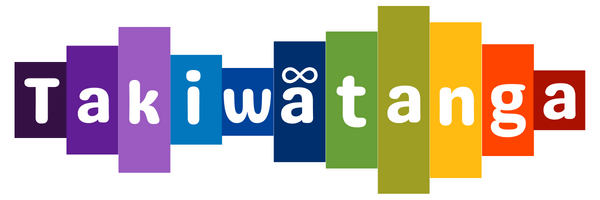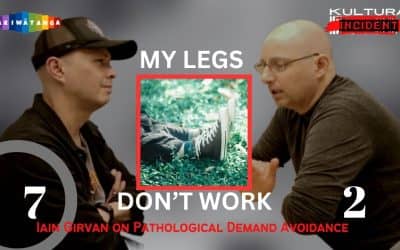A Deep Dive into Understanding Autism and ADHD
Welcome to latest blog post where we dive deeply into the experiences and insights shared by our guest, Chanelle. In this episode, Chanelle provides us with valuable perspectives on autism and ADHD, dispelling myths and emphasizing the need for greater awareness.
The Multifaceted Role of an Autistic Advisor
Introduction to Chanelle’s Work
Chanelle plays multiple roles as an autistic advisor, researcher, author, and illustrator. Her work involves a variety of tasks, including providing education presentations, managing resources, attending events, conducting data analysis, and offering insights to clients and parents dealing with neurodivergent individuals.
“My role as an autistic adviser involves giving education presentations to employers and organizations, making resources depending on what the community needs… and helping clients who need an autistic perspective.” – Chanelle
Chanelle helps bridge the gap between neurotypical understanding and the lived experiences of autistic individuals. By providing an authentic perspective, she aids in creating more informed and supportive environments.
Personal Struggles and the Path to Diagnosis
Life Before Diagnosis
Chanelle’s journey to her autism and ADHD diagnosis was far from easy. She struggled immensely with her mental health and faced bullying. Moving to New Zealand at nine, coupled with other significant life changes, exacerbated her difficulties.
“I always felt different and I got bullied a lot… Moving to New Zealand when I was 9 was very hard as an undiagnosed autistic person who struggles with change.” – Chanelle
The absence of a diagnosis meant she spent much of her early life feeling misunderstood and isolated. By the age of 15, Chanelle became clinically depressed, highlighting the urgency and importance of appropriate and early diagnosis.
The Relief of Diagnosis
Receiving a diagnosis at 21 was life-changing for Chanelle. It not only saved her life by alleviating her suicidal ideations but also allowed her to find the right tools and support systems, significantly improving her quality of life.
“My diagnosis was very much a relief because I was able to use the right tools to help myself… and get work for the first time because I had the right accommodations.” – Chanelle
Through diagnosis, she found a community of individuals with similar experiences, emphasizing the importance of community and support in managing neurodivergent conditions.
Navigating ADHD and Medication
Journey to ADHD Diagnosis
Chanelle was assessed for ADHD at the age of four but was not diagnosed until she was 22. Initially placed in a gifted kids program, her behaviors were not scrutinized under the lens of ADHD until much later.
“I was assessed when I was 4, but the psychiatrist decided not to diagnose me. I got my ADHD diagnosis formally when I was 22, a year after my autism diagnosis.” – Chanelle
This delay in diagnosis is a common occurrence among females, who often exhibit ADHD symptoms differently than males.
Impact of Medication
Accessing ADHD medication proved challenging due to the high cost and limited availability of psychiatrists in New Zealand. But once Chanelle started medication, the positive impact was immediate and profound.
“When I started my [ADHD] medication, the first thing I noticed was that my suicidal ideation stopped. Gone.” – Chanelle
Chanelle stresses the importance of medication in managing dopamine levels, which in turn helps regulate motivation and happiness for individuals with ADHD. However, she also notes the adjustment period required to reintegrate the newfound ease brought on by medication into daily life.
Dispelling Myths and Misconceptions
Common Misconceptions about Autism
The podcast episode also touched on prevalent misconceptions about autism, such as the idea that “everyone is a little bit autistic” or that autism only affects boys. These stereotypes are not only inaccurate but harmful.
“A common misconception is that autistic people don’t understand right from wrong, which is not true. Also, the statement ‘you don’t look autistic’ is considered ableist as autism doesn’t have a specific look.” – Chanelle
Chanelle challenges these notions, advocating for a more nuanced understanding of autism that goes beyond simplistic and misguided stereotypes.
The Importance of Education
Chanelle highlights the critical need for education and awareness, especially among professionals and parents. Understanding the ‘why’ behind behaviors and traits linked to autism and ADHD can lead to more compassionate and effective support systems.
“There is a need for more education and awareness for professionals and parents about autism and ADHD, and understanding the ‘why’ behind behaviors.” – Chanelle
By fostering empathy and knowledge, we can create a more inclusive society that supports neurodivergent individuals in realizing their full potential.
Conclusion
Chanelle’s journey and insights shine a light on the complexities of living with autism and ADHD. Her work as an autistic advisor and author emphasizes the need for greater understanding and accommodation in our society. By listening to voices like Chanelle’s, we can move towards a more inclusive and empathetic world for all neurodivergent individuals.



0 Comments